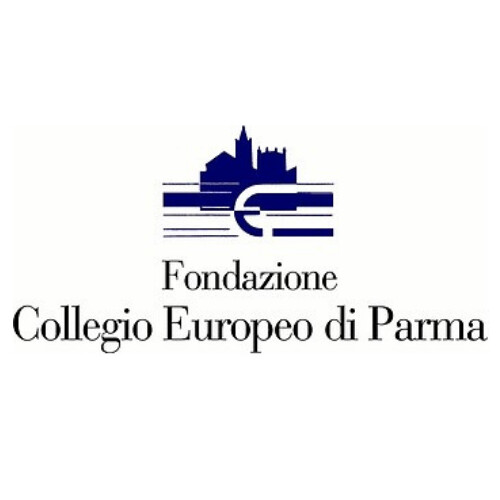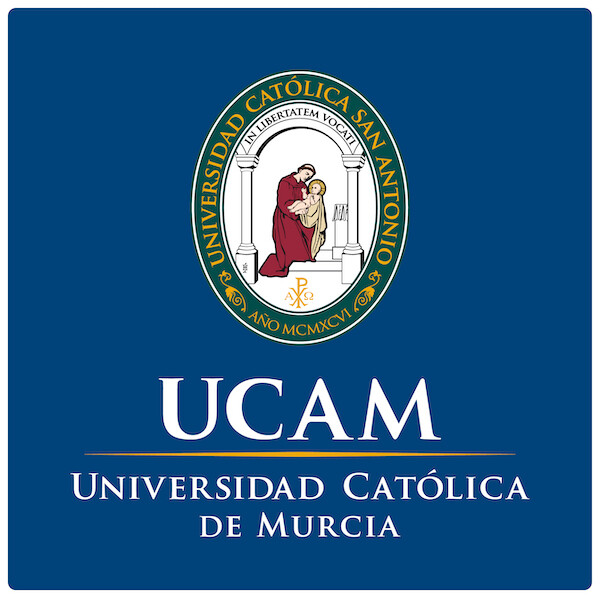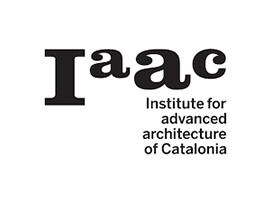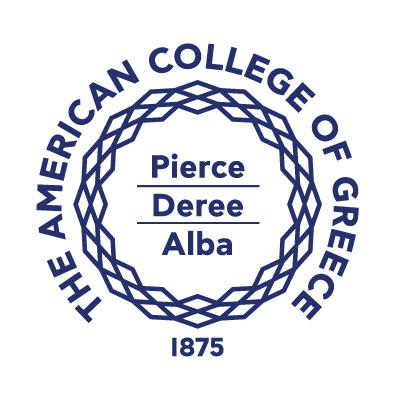Best Masters Degrees & Masters Programs
-
MasterMaster en Big Data & Business Analytics
Escuela de Organización Industrial (EOI)‣ Madrid , Spain
-
2022/09/01
-
7 months
-
Spanish
-
15400 €
Este Master te preparará para acceder a los puestos más demandados por el mercado de las tecnologías Big Data.
Tags: Masters in Madrid, Masters in Escuela de Organización Industrial, Masters in Spain, Masters in Business Analytics, Masters in Business, Masters in Business Studies,
-
-
MasterDiploma and University Master in Advanced European Studies
Fondazione Collegio Europeo di Parma (Collegio Europeo)‣ Parma , Italy
-
2021/10/04
-
1 year
-
English
-
5000 €
DAES is a programme designed to provide tools for building up a European and international career.
Tags: Masters in Parma, Masters in Fondazione Collegio Europeo di Parma, Masters in Italy, Masters in European studies, Masters in Area studies, Masters in Social Sciences,
-
-
OnlineMasterMáster en RRHH: Dirección de Personas, Desarrollo de Talento y Gestión Laboral
Escuela Internacional de Posgrados (EIP)‣ Malaga , Spain
-
2021/11/22
-
13 months
-
Spanish
-
Request info
Te capacitará para asumir todas las funciones y responsabilidades propias de la dirección de un departamento de Recursos Humanos.
Tags: Masters in Malaga Online, Masters in Escuela Internacional de Posgrados Online, Masters in Spain Online, Masters in Human Resource Development Online, Masters in Human Resources Online, Masters in Administration Studies Online,
-
-
MAMA Filmmaking
Central Film School (CFS)‣ London , United Kingdom
-
2021/09/27
-
1 year
-
English
-
10400 £
The MA Filmmaking course develops and nurtures independent filmmakers and prepares them for the professional film industry.
Tags: Masters in London, Masters in Central Film School, Masters in United Kingdom, Masters in Filmmaking, Masters in Film Studies, Masters in Journalism and Mass Communication,
-
-
OnlineMasterMaster en Economía Circular
Escuela de Organización Industrial (EOI)‣ Madrid , Spain
-
2022/09/01
-
1 year
-
Spanish
-
10200 €
Permite comprender en profundidad las problemáticas relacionadas con el modelo lineal actual para poderlas transformar en oportunidades profesionales y de negocio hacia la Economía Circular.
Tags: Masters in Madrid Online, Masters in Escuela de Organización Industrial Online, Masters in Spain Online, Masters in Environmental Sciences Online, Masters in Environmental Studies Online,
-
-
MasterMBA Green & Tech
Escuela de Organización Industrial (EOI)‣ Madrid , Spain
-
2022/09/01
-
10 months
-
Spanish
-
17200 €
Responde a la necesidad de profesionales que combinen la sostenibilidad y la digitalización, pero con una clara vinculación al negocio.
Tags: Masters in Madrid, Masters in Escuela de Organización Industrial, Masters in Spain, Masters in Business Administration, Masters in International Business Administration, Masters in Business Studies,
-
-
MasterInternational Master in Sustainable Development and Corporate Responsibility
Escuela de Organización Industrial (EOI)‣ Madrid , Spain
-
2022/09/01
-
10 months
-
English
-
16400 €
Graduates of the International Master in Sustainable Development and Corporate Responsibility program gain skills and competencies that are suitable for posts in a wide range of sectors and organizations both in Spain and internationally.
Tags: Masters in Madrid, Masters in Escuela de Organización Industrial, Masters in Spain, Masters in Sustainable Development, Masters in Sustainable Economic Studies, Masters in Sustainability Studies,
-
-
MasterMarketing
Instituto Português de Administração de Marketing - Lisboa (IPAM Lisboa)‣ Lisbon , Portugal
-
2021/09/20
-
2 years
-
English
-
6274 €
The world is moving at a very fast pace and modern business is increasingly global...
Tags: Masters in Lisbon, Masters in Instituto Português de Administração de Marketing - Lisboa, Masters in Portugal, Masters in Marketing Management, Masters in Marketing, Masters in Marketing Studies,
-
-
MasterMaster Sculpting Extreme
Universal Arts School (UA School)‣ Valencia , Spain
-
2021/09/06
-
2 years
-
Spanish
-
Request info
Program available in English and Spanish.
Tags: Masters in Valencia, Masters in Universal Arts School, Masters in Spain, Masters in Game Design, Masters in Computer Arts, Masters in Art Studies,
-
-
OnlineMAMA Screenwriting (online)
Central Film School (CFS)‣ London , United Kingdom
-
2021/09/27
-
2 years
-
English
-
5200 £
Designed to allow you to study from anywhere in the world, this online, part time MA Screenwriting course develops and nurtures screenwriters and prepares them for the professional film and television industries.
Tags: Masters in London Online, Masters in Central Film School Online, Masters in United Kingdom Online, Masters in Screenwriting Online, Masters in Film Studies Online, Masters in Journalism and Mass Communication Online,
-
-
MasterMaster of Business Administration
EU Business School - Munich Campus (EU MUNICH)‣ Munich , Germany
-
2021/09/27
-
1 year
-
English
-
22500 €
For professionals who want to change their career path, move into managerial positions.
Tags: Masters in Munich, Masters in EU Business School - Munich Campus, Masters in Germany, Masters in Business Administration, Masters in International Business Administration, Masters in Business Studies,
-
-
OnlineMasterMáster en Dirección Financiera, Contable y Control de Gestión
Escuela Internacional de Posgrados (EIP)‣ Malaga , Spain
-
2021/11/22
-
13 months
-
Spanish
-
Request info
Te capacitará para liderar la gestión integral financiero-fiscal de las empresas.
Tags: Masters in Malaga Online, Masters in Escuela Internacional de Posgrados Online, Masters in Spain Online, Masters in Accounting and Finance Online, Masters in Accounting Online, Masters in Economic Studies Online,
-
-
OnlineMasterMaster en Desarrollo Sostenible y Responsabilidad Social Corporativa
Escuela de Organización Industrial (EOI)‣ Madrid , Spain
-
2022/09/01
-
10 months
-
Spanish
-
10200 €
Te permitirá acceder a puestos directivos y técnicos en la gestión de la Responsabilidad Social Corporativa en empresas y entidades de cualquier sector, Administración Pública y organizaciones no gubernamentales.
Tags: Masters in Madrid Online, Masters in Escuela de Organización Industrial Online, Masters in Spain Online, Masters in Sustainable Development Online, Masters in Sustainable Economic Studies Online, Masters in Sustainability Studies Online,
-
-
MasterMaster en Energías Renovables y Mercado Energético
Escuela de Organización Industrial (EOI)‣ Madrid , Spain
-
2022/09/01
-
10 months
-
Spanish
-
15400 €
Te capacita para desarrollar tu trayectoria profesional en compañías de energías renovables, ingeniería y consultoría energética, eléctricas y servicios energéticos.
Tags: Masters in Madrid, Masters in Escuela de Organización Industrial, Masters in Spain, Masters in Sustainable Energy, Masters in Energy, Masters in Energy Studies,
-
-
MasterMaster Ilustration Concept Art
Universal Arts School (UA School)‣ Valencia , Spain
-
2021/09/06
-
2 years
-
Spanish
-
Request info
On campus (Valencia), Online and Blended. Program available in English and Spanish.
Tags: Masters in Valencia Online, Masters in Universal Arts School Online, Masters in Spain Online, Masters in Concept Art Online, Masters in Illustration Online, Masters in Art Studies Online,
-
-
MasterFull-Time MBA
Luiss Business School Roma (Luiss BS Roma)‣ Rome , Italy
-
2021/10/18
-
1 year
-
English
-
30000 €
It is an intensive programme that enables participants to develop a business strategy that includes creativity, international orientation, ethics and social responsibility, and to face the new challenges of worldwide leaders.
Tags: Masters in Rome, Masters in Luiss Business School Roma, Masters in Italy, Masters in Business Administration, Masters in Business Studies,
-
-
OnlineMasterMáster en Dirección de Compliance y Protección de Datos
Escuela Internacional de Posgrados (EIP)‣ Malaga , Spain
-
2021/11/22
-
1 year
-
Spanish
-
Request info
Te convertirá en un/a profesional de alta cualificación con las competencias necesarias para realizar tareas especializadas de protección de datos y cumplimiento normativo o Compliance.
Tags: Masters in Malaga Online, Masters in Escuela Internacional de Posgrados Online, Masters in Spain Online, Masters in Compliance Online, Masters in Finance Online, Masters in Economic Studies Online,
-
-
MasterMáster en Ingeniería y Gestión Medioambiental
Escuela de Organización Industrial (EOI)‣ Madrid , Spain
-
2022/09/01
-
10 months
-
Spanish
-
15400 €
Para jóvenes profesionales, titulados en carreras de ciencias e ingenierías que deseen especializarse en ingeniería y gestión medioambiental.
Tags: Masters in Madrid, Masters in Escuela de Organización Industrial, Masters in Spain, Masters in Environmental Engineering, Masters in Engineering Studies,
-
-
MasterMaster Matte Painting
Universal Arts School (UA School)‣ Valencia , Spain
-
2021/09/06
-
2 years
-
Spanish
-
Request info
On campus (Valencia), Online and Blended. Program available in English and Spanish.
Tags: Masters in Valencia Online, Masters in Universal Arts School Online, Masters in Spain Online, Masters in Computer Arts Online, Masters in Computer Animation Online, Masters in Game Design Online, Masters in Special Effects Online, Masters in Web Design Online, Masters in Art Studies Online,
-
-
MasterMaster Videogame Art
Universal Arts School (UA School)‣ Valencia , Spain
-
2021/09/06
-
2 years
-
Spanish
-
Request info
On campus (Valencia), Online and Blended. Program available in English and Spanish.
Tags: Masters in Valencia Online, Masters in Universal Arts School Online, Masters in Spain Online, Masters in Game Design Online, Masters in Computer Arts Online, Masters in Art Studies Online,
-
-
MasterMaster Game Design
Universal Arts School (UA School)‣ Valencia , Spain
-
2021/09/06
-
2 years
-
Spanish
-
Request info
On campus (Valencia), Online and Blended. Program available in English and Spanish.
Tags: Masters in Valencia Online, Masters in Universal Arts School Online, Masters in Spain Online, Masters in Game Design Online, Masters in Computer Arts Online, Masters in Art Studies Online,
-
-
MasterMBA in Blockchain Management
EU Business School (EU BCN)‣ Barcelona , Spain
-
2021/09/27
-
1 year
-
English
-
20850 €
A panoramic understanding of the fundamentals of blockchain.
Tags: Masters in Barcelona, Masters in EU Business School, Masters in Spain, Masters in Business Management, Masters in Franchise Management, Masters in International Business Management, Masters in Small Business Management, Masters in Business Studies,
-
-
MasterMaster in Data Analytics (MDA)
ISDI (ISDI)‣ Madrid , Spain
-
2021/10/07
-
9 months
-
Spanish
-
21450 €
Un programa único, diseñado para satisfacer las necesidades de la empresa actual y futura.
Tags: Masters in Madrid, Masters in ISDI, Masters in Spain, Masters in Data Analytics, Masters in Data Science, Masters in Technology Studies,
-
-
MasterSustainability and Energy Industry - Major of the Master in International Management
Luiss Business School Milano (Luiss BS Milano)‣ Milan , Italy
-
2021/09/27
-
1 year
-
English
-
16000 €
The Master focuses on the transfer of basic knowledge about the Energy industry as well as developing a thorough knowledge of the Energy ecosystem.
Tags: Masters in Milan, Masters in Luiss Business School Milano, Masters in Italy, Masters in Sustainable Energy, Masters in Energy, Masters in Energy Studies,
-
-
OnlineMasterMáster Universitario en Acceso a la Abogacía
Universidad Católica San Antonio de Murcia (UCAM)‣ Murcia , Spain
-
Request info
-
15 months
-
Spanish
-
5300 €
Contamos con un claustro de profesores y abogados especializados, que junto con los tutores de prácticas, garantizan una excelente formación teórica y práctica para superar el examen de Acceso a la Abogacía y el ejercicio de la profesión.
Tags: Masters in Murcia Online, Masters in Universidad Católica San Antonio de Murcia Online, Masters in Spain Online, Masters in Law Online, Masters in Legal Studies Online, Masters in Law Studies Online,
-
-
MasterMaster in Advanced Architecture - Computational Design & Digital Fabrication
Institut d'Arquitectura Avançada de Catalunya (IAAC)‣ Barcelona , Spain
-
Request info
-
9 months
-
English
-
18750 €
Based in Barcelona, IAAC’s Master in Advanced Architecture (MAA) is a 1/2-year programme that revolutionizes current architectural approaches and methods training professionals to become changemakers in the arena of architecture and built environment.
Tags: Masters in Barcelona, Masters in Institut d'Arquitectura Avançada de Catalunya, Masters in Spain, Masters in Urban Design, Masters in Architecture Studies,
-
-
MasterCreative Computing and Artificial Intelligence
IADE - Faculdade de Design Tecnologia e Comunicação (IADE)‣ Lisbon , Portugal
-
2021/09/20
-
2 years
-
English
-
5019 €
The master degree in Creative Computing and Artificial Intelligence aims to be a strong option...
Tags: Masters in Lisbon, Masters in IADE - Faculdade de Design Tecnologia e Comunicação, Masters in Portugal, Masters in Artificial Intelligence, Masters in Computer Science, Masters in Technology Studies,
-
-
MasterCustomer Experience Management – Major of the Master in Marketing Management
Luiss Business School Roma (Luiss BS Roma)‣ Rome , Italy
-
2021/09/27
-
1 year
-
English
-
16000 €
The Major aims at providing a real understanding of the customer and the variables that influence its experience in the multiple interactions with the company.
Tags: Masters in Rome, Masters in Luiss Business School Roma, Masters in Italy, Masters in Marketing Management, Masters in Marketing, Masters in Marketing Studies,
-
-
OnlineMasterEcommerce Activation Program (ECOM)
ISDI (ISDI)‣ Madrid , Spain
-
2021/10/06
-
4 months
-
Spanish
-
7650 €
Un programa online diseñado para profesionales que buscan comprender los secretos del ecommerce.
Tags: Masters in Madrid Online, Masters in ISDI Online, Masters in Spain Online, Masters in E-Commerce Online, Masters in Business Studies Online,
-
-
MasterMáster Executive MBA
Escuela de Negocios y Administración de Empresas (ENAE)‣ Murcia , Spain
-
Request info
-
10 months
-
Spanish
-
16500 €
Programa de formación innovadora y práctica para la adquisición de una visión global del mercado enfocada en la internacionalización y digitalización, capaces de alcanzar la excelencia en el liderazgo como empresarios y directivos.
Tags: Masters in Murcia, Masters in Escuela de Negocios y Administración de Empresas, Masters in Spain, Masters in Business Administration, Masters in International Business Administration, Masters in Business Studies,
-
-
MAM.A. in International Relations and Diplomacy
Anglo-americká vysoká škola, o.p.s. (AAUNI)‣ Prague , Czech Republic
-
Request info
-
2 years
-
English
-
393900 Kč
The MA in International Relations and Diplomacy is an internationally accredited program.
Tags: Masters in Prague, Masters in Anglo-americká vysoká škola, o.p.s., Masters in Czech Republic, Masters in International Cooperation, Masters in International Relations, Masters in Social Sciences,
-
-
MasterMarketing
Instituto Português de Administração de Marketing - Porto (IPAM Porto)‣ Porto , Portugal
-
2021/09/20
-
2 years
-
English
-
6274 €
This Global Master is a pioneering program in Portugal and Europe...
Tags: Masters in Porto, Masters in Instituto Português de Administração de Marketing - Porto, Masters in Portugal, Masters in Marketing Management, Masters in Marketing, Masters in Marketing Studies,
-
-
OnlineMasterMáster en Negocio - ThePowerMBA
ThePowerMBA (TPMBA)‣ Madrid , Spain
-
Request info
-
6 months
-
Spanish
-
499 €
Máster completo de negocio (estrategia, marketing, Lean Startup…) en el que aprendes con los emprendedores, empresarios y directivos de las empresas que están cambiando el mundo (Amazon, Tesla, etc).
Tags: Masters in Madrid Online, Masters in ThePowerMBA Online, Masters in Spain Online, Masters in Business Administration Online, Masters in International Business Administration Online, Masters in Business Studies Online,
-
-
MasterMaster in Business Administration
IMT Business School (IMT)‣ Dubai , United Arab Emirates
-
2021/09/01
-
1 year
-
English
-
23000 US$
This program is appropriate for those aspiring to become global managers.
Tags: Masters in Dubai, Masters in IMT Business School, Masters in United Arab Emirates, Masters in Business Administration, Masters in International Business Administration, Masters in Business Studies,
-
-
MasterMaster in Intercultural Studies for Business
Porto Accounting and Business School (ISCAP)‣ Porto , Portugal
-
2021/05/31
-
2 years
-
English
-
1500 €
The Master in Intercultural Studies for Business opens new international horizons for students. The course was unconditionally approved for 6 years by the national A3Es accreditation agency.
Tags: Masters in Porto, Masters in Porto Accounting and Business School, Masters in Portugal, Masters in Intercultural Studies, Masters in Cultural Studies, Masters in Social Sciences,
-
-
MasterDigital MBA
ISDI (ISDI)‣ Madrid , Spain
-
2021/09/20
-
9 months
-
English
-
26950 €
The MBA that provides knowledge, technology certifications, methodologies and professional practice
Tags: Masters in Madrid, Masters in ISDI, Masters in Spain, Masters in Business Administration, Masters in International Business Administration, Masters in Business Studies,
-
-
MasterMaster Marketing Automation (MMA)
ISDI (ISDI)‣ Madrid , Spain
-
2021/10/15
-
9 months
-
Spanish
-
21450 €
Te ayudará a formar parte y liderar el MarTech, la fusión del marketing y la tecnología.
Tags: Masters in Madrid, Masters in ISDI, Masters in Spain, Masters in Strategic Marketing, Masters in Marketing, Masters in Marketing Studies,
-
-
MScMaster in Counseling Psychology and Psychotherapy
American College of Greece (ACG)‣ Athens , Greece
-
Request info
-
2 years
-
English
-
14580 €
Counselling psychology is a branch of applied professional psychology...
Tags: Masters in Athens, Masters in American College of Greece, Masters in Greece, Masters in Psychology, Masters in Abnormal Psychology, Masters in Addiction Psychology, Masters in Applied Psychology, Masters in Behavioral Science, Masters in Child Psychology, Masters in Clinical Psychology, Masters in Cognitive Psychology, Masters in Developmental Psychology, Masters in Family Psychology, Masters in Forensic Psychology, Masters in Human Sexuality, Masters in Neuropsychology, Masters in Organizational Psychology, Masters in Psychological Research, Masters in School Psychology, Masters in Social Psychology, Masters in Mental Healthcare, Masters in Health Care,
-
-
MasterMaster in Gestione delle Risorse Umane e Organizzazione
Luiss Business School Roma (Luiss BS Roma)‣ Rome , Italy
-
2021/10/25
-
1 year
-
Italian
-
16000 €
Learn the main HR Management practices and the dynamics that govern the management of human capital and how to address the main challenges that human resources directorates face.
Tags: Masters in Rome, Masters in Luiss Business School Roma, Masters in Italy, Masters in Human Resource Management, Masters in Human Resources, Masters in Administration Studies,
-
-
MasterInternational Management
Luiss Business School Milano (Luiss BS Milano)‣ Milan , Italy
-
2021/10/25
-
1 year
-
English
-
16000 €
Held in Milan and Amsterdam. Students will match strong business fundamental skills with real-world situations and acquire all the tools they need to succeed in today’s complex world.
Tags: Masters in Milan, Masters in Luiss Business School Milano, Masters in Italy, Masters in International Management, Masters in Management Studies,
-
-
MAPostgraduate Certificate in Cyber Security
Howest University of Applied Sciences (HOWEST)‣ Kortrijk , Belgium
-
Request info
-
3 years
-
English
-
2500 €
The Postgraduate Certificate in Cyber Security at Howest University of Applied Sciences in Belgium.
Tags: Masters in Kortrijk, Masters in Howest University of Applied Sciences, Masters in Belgium, Masters in Cybersecurity, Masters in Information Technology, Masters in Technology Studies,
-
-
MasterInternational Management
Luiss Business School Amsterdam (Luiss BS Amsterdam)‣ Amsterdam , Netherlands
-
2021/10/25
-
1 year
-
English
-
16000 €
Held in Milan and Amsterdam. Students will match strong business fundamental skills with real-world situations and acquire all the tools they need to succeed in today’s complex world.
Tags: Masters in Amsterdam, Masters in Luiss Business School Amsterdam, Masters in Netherlands, Masters in International Management, Masters in Management Studies,
-
-
OnlineMasterMBA Máster en Administración y Dirección de Empresas
Instituto Superior Europeo de Barcelona (ISEB)‣ Barcelona , Spain
-
Request info
-
1 year
-
Spanish
-
1250 €
El MBA te proporcionará conocimientos en marketing, finanzas, recursos humanos, aprovisionamiento, comunicación y gestión del talento, implantación y formulación de estrategias de éxito basadas en las necesidades de cada organización.
Tags: Masters in Barcelona Online, Masters in Instituto Superior Europeo de Barcelona Online, Masters in Spain Online, Masters in Administration, Business, and Economics Online, Masters in Professional Studies Online,
-
-
MasterBusiness Transformation - Major of the Master in Management and Technology
Luiss Business School Roma (Luiss BS Roma)‣ Rome , Italy
-
2021/09/27
-
1 year
-
English
-
16000 €
It develops digital capabilities, managerial skills and leadership techniques required to succeed in firms operating in the digital ecosystem or in businesses undergoing a digital transformation process.
Tags: Masters in Rome, Masters in Luiss Business School Roma, Masters in Italy, Masters in Technology Management, Masters in Technology Studies,
-
-
MasterMestrado em Informática
Instituto Superior de Tecnologias Avançadas (ISTEC)‣ Lisbon , Portugal
-
Request info
-
Request info
-
Português
-
Request info
Construir e aprofundar conhecimentos em áreas emergentes dentro da Informática e da Multimédia
Tags: Masters in Lisbon, Masters in Instituto Superior de Tecnologias Avançadas, Masters in Portugal, Masters in Computing, Masters in Computer Science, Masters in Technology Studies,
-
-
MADesign for Health and Wellbeing
Politécnico de Leiria (Politécnico de Leiria)‣ Leiria , Portugal
-
2021/09/02
-
2 years
-
Português
-
1140 €
The goal of this master’s is to teach project professionals w/ interdisciplinary knowledge/skills.
Tags: Masters in Leiria, Masters in Politécnico de Leiria, Masters in Portugal, Masters in Arts and Design, Masters in Professional Studies,
-
-
MasterEnglish as a Second Language
Miami International University of Art & Design (ARTINSTITUTES)‣ Miami , United States
-
2021/07/12
-
6 months
-
English
-
3500 US$
Develop your reading, writing, listening and speaking skills.
Tags: Masters in Miami, Masters in Miami International University of Art & Design, Masters in United States, Masters in ESL, Masters in English, Masters in Languages,
-
-
MasterMaster in Business Management
Universidade Autónoma de Lisboa Luís de Camoes (UAL)‣ Lisbon , Portugal
-
2020/10/18
-
2 years
-
English
-
295 €
To provide students with high quality training at international level in the field of management
Tags: Masters in Lisbon, Masters in Universidade Autónoma de Lisboa Luís de Camoes, Masters in Portugal, Masters in Business Management, Masters in Franchise Management, Masters in International Business Management, Masters in Small Business Management, Masters in Business Studies,
-
-
MAMA in Applied Linguistics
Mary Immaculate College (MIC-UL)‣ Limerick , Ireland
-
2021/09/20
-
18 months
-
English
-
12825 €
The Master's in Applied Linguistics provides a broad-based course of study in language description.
Tags: Masters in Limerick, Masters in Mary Immaculate College, Masters in Ireland, Masters in Applied Linguistics, Masters in Linguistics, Masters in Humanities Studies,
-
-
MScMaster in Gastronomy
Politécnico de Leiria (Politécnico de Leiria)‣ Leiria , Portugal
-
2021/09/02
-
2 years
-
Português
-
1140 €
Provides a specialized training in gastronomy and restaurant industry.
Tags: Masters in Leiria, Masters in Politécnico de Leiria, Masters in Portugal, Masters in Gastronomy, Masters in Culinary Arts, Masters in Food and Beverage Studies,
-
What is a Master's Degree?
If you've ever wondered what a master's degree is, it is a graduate academic degree. Many students wonder what a master's degree is for and the answer is simple: to get specialized.
This academic degree is offered by many universities around the world. There are different types of master's degrees from Engineering, Marketing, Business, to Art, Law, and Humanities, among many more.
Find out what a master's degree is and find the one that best suits your interests. Once you have achieved your master's degree, start working on your specialization or broaden the research of your study area and become a specialist!
What is a university-specific master's degree? Differences between official master's degree and university-specific master's degree.
We are used to hearing about university-specific titles and official titles, but what is a university-specific master's degree? A university-specific master's degree is the one that is recognized by the institution that teaches it, while the official master's degree is the one that is recognized by both the institution and the Spanish Ministry of Education. The difference between them lies only in the approval, recognition, and validity of the degree, since at the educational level both are equally competent
What if a master's degree is not official? It depends on whether you plan on getting a doctorate or getting a position in public administration, for example. It should be borne in mind that the validity of university-specific master’s degrees is not the same as that of the official, therefore, you need to to know if a master's degree is official and approved. If you are interested, you can visit the official website of the Ministry of Education.
How many credits does a master's degree have?
ECTS (European Credit Transfer System) credits were implemented to measure students' effort. For the most curious, you'll like to know that each credit equals a total of 25 hours of study.
To find out how many ECTS credits a master's degree has, we must first focus on its duration. Depending on the master's degree duration (one or two years), you will need to complete from 60 to 120 ECTS credits. These credits represent core subjects, optional subjects, compulsory subjects, external internships, and the final research thesis.
For those who ask, there is no difference between how many credits have an official master's degree and how many credits have a university-specific master's degree since these credits depend on the content of the master's degree, not on its validity or official recognition.
Master's duration
The answer to how long a master's degree lasts depends on several factors. You must take into account the specialization (MA, MSc, MBA...), the university in which you take your master's degree, as well as the hours of the official or university-specific master's degree, depending on the credits required.
The duration of the master's degree is from 1 to 2 years in most countries around the world, with a total of between 600 and 1200 hours. In Spain the duration of the master's degree is usually 2 years, as in Germany. In other countries such as the United Kingdom, the United States, or Canada, the duration is usually the same, with the possibility of completing the two academic years in just 1 year by studying more subjects, although it also depends on the type of master's degree and the university.
In Latin America, there are two types of postgraduate studies. On the one hand, there is a specialization, which usually lasts a year; on the other hand, there is a master's degree, which lasts 2 years.
In Asia, it usually lasts from 1 to 2 years, but there are also master's programs of up to 4 yearswhich are usually MSc, or Master of Science.
Master's degree requirements
Another question is… Who can do a master's degree? Have you finished your bachelor's degree but you don't know whether you meet the entry requirements for a Masters-level degree? Here we gather them for you!
What do you need to do to study a Master's degree?
- You must have an official academic degree in higher education, like a Bachelor's Degree. One of the requirements to access a master's degree is to have an official university degree.
- Demonstrate your language proficiency. Many universities require a second language, which is usually English, but always depends on the university. You will need to demonstrate your English Language Proficiency through the TOEFL or IELTS test or do a language level test.
- Apply or your master's degree. Don't forget that every master's degree has an application period, so try to apply for your place as soon as possible.
You should keep in mind that these are general requirements, so you should review the specific admission process for your university and specifically for the master's degree you choose.
Now that you know what the requirements are, don't wait any longer, choose the master that best suits you and show what you're made of!































